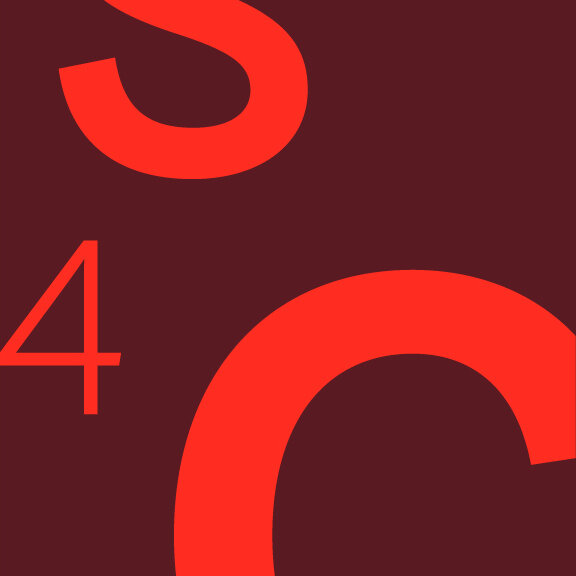
Semester for Change
Take time off from college to get back on track: explore your interests, find a direction, and develop skills for education, career, and life
START ANY TIME
The 16-week program is done on an independent basis; you can begin when you are ready
“After my Sophomore year of college, I took a year-long leave. I wanted to use the time to grow before continuing school, but I had no clear path. So, when I started Semester for Change I had no idea what to expect. John quickly dispelled any “start-of-class” worries I had with the positive energy he brought. His passion for what he does made Semester for Change fun. Now, weeks away from the start of my first semester back at college I feel confident, and I can see my path. The skills I gained from Semester for Change will stay with me and benefit me forever.” – 2022 S4C Student
RAMP Education’s Semester for Change program is entering its third year. Conceived following the Pandemic semester of spring 2020, Semester for Change allows college students to hit pause to reflect on who they are and what they want.
Watch to a recent Semester for Change student discuss his experience in the program.
Maybe you started college, but couldn’t figure out what you wanted to study or struggled with the impersonal nature of your online learning environment. Or you just need a break from school to figure out your interests and purpose. S4C is designed to help you discover or deepen your interests, clarify and design a direction for your college or career path, sharpen your skills for academic success, and think critically about the yourself and world around you.
You will be guided over 16 weeks in a process that helps you sharpen and set your direction. The program includes 2 hours per week of 1 : 1 coaching with a Faculty Guide focused on Life-Design concepts, an 8-20 hours-per-week self-designed personal or social-change exploration, and a reflection process in the form of an ePortfolio. The program is intentionally part-time so you can also work part-time or take credit or non-credit college classes. The self-designed personal exploration can also include credit or non-credit college courses.
Why S4C and Why Now?
Covid has undoubtedly changed the world as we know it, disrupting education in substantial ways. Semester for Change (S4C) sees this disruption as an opportunity to support the personal and career development of 18-24 year olds differently than traditional education allows for.
S4C is designed to help you explore your interests by engaging you in a deep exploration of what makes you tick. The program sees each participant as a creative, resourceful, and whole human being. S4C supports you in developing the sort of mindset that helps you take an interest further than you have before. This deeper level of commitment brings up questions around what it means to live for fulfillment and purpose.
For those who complete the program and decide to return to, or begin, college, the S4C Faculty Guide helps participants consider whether they would do best in a traditional or non-traditional college environment. Participants can also be supported in planning a pathway to credentials outside the traditional college degree system. Either way, the program helps participants develop a plan for the future.

Where?
Anywhere.
With an internet connection
and the motivation to
do a self-designed exploration
Who’s the program for?
There isn’t one type of S4C participant, however, the program tends to attract curious young people aged 18-24 who have felt the start of college knocked them off course or they haven’t necessarily found the traditional approach to education a good fit. Many enjoy learning independently or prefer to be in charge of their educational experience. Others want to gain greater self-awareness and skills in how to best “do” college. And others want to test an interest to a deeper degree than they have in the past. Some S4C participants have struggled with attentional, learning, or mental-health issues that can accompany the sort of abilities that are not always rewarded in school: creativity, hands on and experiental learning, and self-direction. Most sense they have a unique way of being in the world, but haven’t yet harnessed their potential.

Follow Your Interests
THE THREE-COMPONENT PROGRAM
1/ Life-Design coaching
Using the innovative Designing Your Life framework and Co-Active coaching process, S4C catalyzes you in a process of self-discovery and purpose-finding. Concepts are explored in 1:1 sessions with your coach with the understanding that a person is able to develop their abilities and live fulfilling lives when they utilize their inner resources and cultivate an attitude that emphasizes personal growth throughout life. You will approach important decisions with greater certainty — such as whether to return to college or find an alternative route to a career. You are coached in viewing your life as a creative project full of possibilities. 1:1 coaching uses Zoom video conferencing and various cloud-based apps (Google Classroom, Google Docs, Miro white boards, and Notion journals) for an integrated experience that feels like a meaningful ongoing conversation between the student and guide.
You are also supported in the coaching sessions by your coach who collaborates with you to set goals for the personal or social-change exploration and stay on task throughout the process. Your coach helps you expand your thinking, connects you to resources, supports you in becoming more self-reflective and accountable, and becomes part of your support system for what comes next after Semester for Change. 2 hours weekly
2/ Personal or social-change exploration
The self-designed exploration comes out of the discoveries you make exploring Life-Design concepts in the 1:1 coaching sessions with your faculty guide. You can go deep into a life-long passion, try your hand at a new-found interest, challenge an idea, get in shape, rally other people around a cause, take classes, create a podcast, do a certification, or do an internship – the sky’s the limit. Your exploration can be personal in nature (including creative, athletic, mindfulness, entrepreneurial, or academic explorations) or it can promote social change by addressing an issue or need in a community. You will determine the scope and time allotment for your exploration between 8-20 hours per week, allowing you to pursue part-time work or other commitments. 8-20 hours weekly, starting around week 5 or 6
3/ Dynamic electronic learning portfolio process
You will create an ongoing electronic portfolio (ePortfolio) in the form of a Miro white board that serves as a place to, 1) explore and reflect on the coaching concepts we cover, 2) envision, plan, and organize your personal or social-change exploration, 3) set and hold yourself accountable to goals and, 4) document and reflect on the your discoveries over the course of the program. Part resource collection, designer’s idea board, blog, notebook, and reflection journal, the personalized ePortfolio is regularly discussed with Semester For Change coaches to ensure progress, reflection, and accountability. Participants can decide near the completion of the program whether they want to publicly publish their ePortfolio website. 1-2 hour per week
The program requires a total of 12– 24 hours per week, which allows you to work part-time.
Work with your coach on Life Design concepts, conduct a personal or social-change project, and document and reflect on your experience…all while holding a part-time job.
95% of 2020-23 S4C participants returned to college, or plan to return, the following semester.
What past participants are saying…
“Semester for Change allowed me to decide what I wanted to study. I chose an exploration to do – and I did it. I had consistent support from my faculty guide and the class that met twice a week. They helped me design my exploration and offered positive guidance. I directed a Zoom staged reading of the play Hir written by Taylor Mac. I hired the actors, held rehearsals, and publicized the event. The outcome was well received. It was the piece of theatre that got me motivated again. I was lifted from my stagnation because the project pushed me to try to realize my goals. And because I was able to do this project in Semester for Change, design what I did, and show that I have the motivation to pursue projects that I truly care about, I learned that I did in fact want to go back to school – but in a self-directed program that’s better suited than my former traditional college to help me achieve my dreams.”
“After a rough year in college, Semester for Change gave me the tools I needed to get back on track and be successful going forward. I applied for Semester for Change on a whim, not knowing exactly what to expect, and I'm so happy I did. I am so grateful to have had the opportunity to work with my faculty guides. They guided me through thinking about my next steps with school and my career, while also supporting me in my creative endeavors. Returning to college after Semester for Change, I’ve noticed I feel a lot more comfortable with talking to teachers and asking questions. The program also helped me learn how to change my mindset about school work. I’ve been putting more effort into assignments I normally would deem easy or boring and try to make them more fun by going above and beyond what’s necessarily required. I also feel less anxiety about my future plan because now I know how to plan and replan when I reach set backs. I hope anyone considering this program decides to go through with it because it's truly a worthwhile experience.”
“As I took time off from college, doing Semester for Change allowed me to explore an independent project while consulting with the faculty guides. This past semester has been the perfect break from traditional schooling and has allowed me to learn a lot more about myself.”



